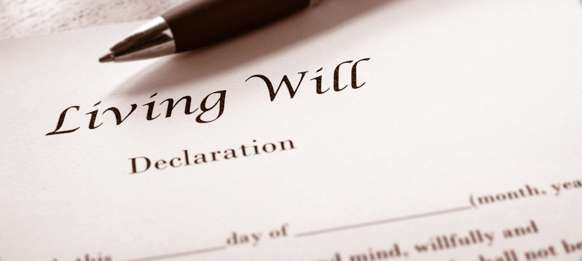Explanation of the answers
This was a tough quiz covering estate planning in Canada. In this article we will provide you with some explanations for our answers.
Common-Law inheritance in Canada
Question 1

This is sadly one of the most dangerous misconceptions. There is a widely held belief that living with somebody for more than a period of time, say, two years, will give you the same inheritance rights as a married couple. This is not true.
It is also common to think that the distribution of the estate is automatically the same whether or not you have a Will. Even for common-law spouses. This is also incorrect.
However, there is significant variation from Province to Province. British Columbia treats a couple who have lived together for two years in the same way as a married couple. If there is no Will in BC, the common-law spouse receives the first $300,000 and shares the remainder with the children. If the question had been for BC, the answer would have been number 1.
Manitoba also treats common-law spouses in the same way as a married couple. As do the Yukon, Northwest Territories, and Nunavut.
Saskatchewan includes common law spouses, but excludes married partners who are currently living with a different partner at the time of the testator’s death.
The question specifically asked about Ontario. In Ontario, New Brunswick, Nova Scotia, PEI, and Newfoundland and Labrador, there is absolutely no recognition of a common-law status for estates where there is no Will. The common-law partner will receive absolutely nothing (unless they claim a dependency, in which case they can apply to the courts for a share of the estate).
If you are in one of these Provinces, in a common-law relationship, it is critical that you prepare a Last Will and Testament to protect the inheritance rights of your partner.
Verbal Promises in a Will
Question 2

This question highlights two different issues. The question suggests that a Last Will and Testament has been written, but nobody can find it. We receive calls into our support team on a daily basis from people who have recently lost a loved one. They know that a Will has been written, but they cannot find it.
Writing your Will and then hiding it, has the same effect as not writing a Will. If nobody can find your Will, you have effectively died “intestate” and your estate will be distributed according to intestate distribution laws.
The question doesn’t specify which Province the uncle was living in, but in this case it doesn’t matter. He was not married, and he has one son. It doesn’t matter that his son is living in Australia, his entire estate will go to his son.
Dying without a Will, or dying with a Will that nobody can find, still creates a number of complications. An Executor must be appointed by the courts, and with the only son living in Australia, this would not be a straightforward appointment.
This question again highlights the mess that can develop when you die without a Will. Or in this case, when you die after writing a Will, but nobody can find it.
One other note about this question. Verbal promises count for absolutely nothing. If your uncle promised you $10,000 from his estate, or his car, or half of his estate, if it is not written into a legal Last Will and Testament, the verbal promise counts for nothing.
Grounds for Challenging a Will in Canada
Question 3

This is a very complicated situation. If somebody came to us describing this situation, we would immediately direct them to seek legal advice. Here we have a mother who died, and who wanted her estate to go to her spouse, and then after the spouse died, the mother said that she wanted the estate to go to the children.
But the mother’s distribution plan in her Will simply left everything to the spouse, with the children receiving everything as an alternate plan that would only come into effect if the father pre-deceased the mother. So the mother’s estate went entirely to the father, to become a part of his estate to be distributed according to the instructions in his Will.
His Will has directed that his entire estate will go to the Humane Society as a charitable bequest. In most Provinces, an adult child does not have a right to inherit from their parent’s estate (with British Columbia being a possible exception). In PEI, as with every other Canadian Province, an adult child cannot successfully challenge a Will simply because they’ve been left out.
For this question, the promise of the mother is not a factor. We are dealing with the father’s estate and neither Will has any of the estate going to the children.
Which brings us to the grounds for successfully challenging a Will in Canada.
You can successfully contest a Will if you believe that the person writing the Will (the Testator) did not have the capacity to prepare the Will. They didn’t understand that they were preparing a Will, nor did they understand the implications of the document. A challenge would be backed up by a doctor’s assessment, perhaps looking at any medications and the state of physical and mental health at the time of the Will signing. The witnesses may also be asked to testify and describe the state of mental and physical health of the testator when they signed the document.
The Will can also be successfully challenged if the testator was coerced or unduly influenced. These are subtly different, coerced means that they were pressured into signing the document that they didn’t want to sign. Unduly influenced means that over time they were convinced that the Will should be written in a certain way. For this question, everything is going to the Humane Society. Let us assume that the organization was not standing over the old man forcing him to sign a new Will.
A Will can also be successfully challenged if there is a suspicion of fraud. If the Will was created or signed by somebody other than the testator, or a page was manipulated, or swapped out. Any fraudulent or forged manipulation of the document is grounds for a successful challenge.
The final angle for successfully contesting a Will is when the document has not been signed correctly. The Will must be signed in the presence of two adult witnesses who are not beneficiaries in the Will. The three people must all be present in a room together, and must all sign and date the document in each other’s presence. If the document has not been signed correctly, it is not a legal Last Will and Testament.
Roles and Responsibilities of the Executor
Question 4

We do have a page dedicated to the roles and responsibilities of the Executor. In summary, the Executor must firstly secure the assets, and then probate the Will. Securing the assets may involve changing locks on doors, and would usually include taking an inventory of assets.
Probating of the Will is the process by which the document is accepted as the official Last Will and Testament, then the Executor is given the court authority to act as the estate administrator. They are giving a “Grant of Probate” and this document will help them work with the banks and other financial institutions to gather up the estate.
In some Provinces, one of the first steps is to value the estate so that final tax returns can be prepared for Canada Revenue Agency. In Ontario for example, this Estate Information Return must be filed within 90 days of the Executor being appointed.
The Executor is also responsible for organizing the funeral. Usually this is done in collaboration with family members, but the funeral fees are generally paid for out of the estate (assuming that the funeral hasn’t been pre-paid). But if there is disagreement over some decisions – particularly the style and expense of the funeral, then the Executor has the final say.
Of these options, one item is not a responsibility of the Executor. The Executor does not have to sell all of your mother’s possessions. The Executor must gather the assets and distribute them according to the instructions in the Will, but they are not required to liquidate or sell everything.
If the assets are all going to a single beneficiary, then they can simply be passed to that beneficiary. If they are to be shared between a number of beneficiaries, then the Executor can use their judgement to equitably divide the possessions between the beneficiaries.
You can if you wish, also include a “memorandum of wishes” — legally called a “precatory memorandum” — which serves as guidance to the Executor. It may for example suggest that a coin collection can be divided in a particular way, and should be valued at about the level of the Tom Thomson painting.
Dividing the assets is an Executor responsibility, but selling all possessions is not a requirement.
The Holographic Will
Question 5

A holographic Will is a document written entirely in your own handwriting. Nothing is typed into the document, everything is prepared in the handwriting of the testator. There is one thing that is particularly special about this type of Will – it does not need to be signed in the presence of witnesses.
The reason for this is that the law allows for somebody to prepare their own Will when faced with a desperate situation. If you were pinned under a rock, and you knew that your death was approaching, you could in theory quickly prepare your Will, without having to call upon two witnesses to watch you sign.
A holographic Will is not designed to be a mainstream Will writing technique.
It is important therefore to understand that “writing your own Will” does not necessarily mean that you have prepared a holographic Will. For example, if you prepared your own Will using the service at LegalWills.ca, you download and print a PDF and then sign it. This document must be signed in the presence of two witnesses, because it is a typed document. Even though you have prepared your own Will, you still need witnesses to watch you sign. This would not be a holographic Will.
Now that this is understood, let us look at the possible answers to this question. The first one claims that a Will must be typed to be legal. This is not the case. A Will can be handwritten and still be a legal document. If it was signed and witnessed, a handwritten Will would be accepted in all Province and Territories.
The second option makes reference to a holographic Will, and claims that this is a perfectly valid Will. But the third option suggests that in BC this wouldn’t be allowed.
It is an important point that not all Canadian Provinces accept a non-witnessed holographic Will, and BC is a Province that does not recognize holographic Wills.
Alberta, Saskatchewan, Manitoba, Ontario, Quebec, New Brunswick, and Newfoundland & Labrador accept a holographic Will. The other Canadian Provinces, including BC, do not accept non-witnessed holographic Wills.
Funeral wishes and your Will
Question 6

There is a common misconception that your funeral wishes belong in your Will. There are a few reasons why this is not recommended.
Firstly, your Will is a legal document that is legally enforceable. In Canada your funeral wishes are simply an expression of your desires. They are not legally binding, and so do not belong in a legal document.
Your Will must go through probate and be accepted as your Will. At this time there is an opportunity for your Will to be challenged and for creditors to make a claim on the estate. By the time your Will has been accepted as your official Last Will and Testament, your funeral will be over.
Finally, your funeral wishes can be personal. You may include passages to be read to loved ones, lists of people who you may or may not want in attendance, and other sentimental instructions. Your Will is a public document once it is probated, so you may not want all of these wishes in the public domain.
But legally, your Executor is responsible for organizing the funeral. Funeral expenses are covered by the estate (if you have not pre-paid for your funeral) and the decisions related to expenses are all made by your Executor.
You would hope that your Executor would consult with any wishes that you have expressed verbally or in writing. Your Executor should also consult with family members and loved ones. But the final say over the cost and style of the funeral service rests with your Executor.
Writing a Will online
Question 7

The options for writing your own Will have evolved over time. In the 1990’s there was a widely advertised “Canadian Legal Will Kit”. A blank form Will kit that was sold through informercials, but then widely criticized as being inadequate. Many completed Will kits led to estate challenges and expensive legal battles, simply because they were filled out incorrectly. This particular kit is no longer available, but there are others that you can buy online and in Staples.
The evolution of these blank form kits were software-based Will writing tools, including WillExpert sold by Intuit. You were able to purchase WillExpert in stores and it came on a CD/DVD that was installed on your computer. You would step through the service and a Will would be generated for you – to be signed in the presence of two witnesses.
The difficulty with software sold on physical discs is that it is difficult to keep the software up to date. There were also compatibility issues with operating systems and software. In the end, for reasons unknown, Intuit retired WillExpert and no longer support it.
But the idea of guiding people through an interactive service to prepare their Will, is still a good one. Rather like tax preparation software, the service starts by asking which Province you are located in, asks about your family information, key appointments and then the distribution of your estate.
LegalWills.ca came online in 2003 and has grown in popularity each year since then. So is it legal to prepare your Will online?
The answer is yes. But the Will must be downloaded and printed, and then signed in the presence of two witnesses. Digital signatures are not currently accepted as a legally recognized way to authenticate a Will. It’s an odd situation because the formal signing requirements for a Will haven’t changed for over 150 years. We clearly have better technology now than a scrawled signature, but the law notoriously moves incredibly slowly.
When we look at the different possible answers for this question, the answer is yes, absolutely. You can prepare your Will online, but it must be printed and then signed in the presence of two witnesses to be a legal Last Will and Testament.
A Will does not have to be in your own handwriting. A Will does not have to be written by a lawyer.
However, you cannot store your Will online. The probate courts need the original piece of paper that is signed by you. Any photocopy, scanned, faxed, or document stored in the cloud would not be readily accepted by the courts. If it could be shown that the original was accidentally lost or destroyed, then a copy could possibly be accepted by the courts, but you would be relying on the decision of a judge.
What is a Living Will?
Question 8

A Living Will is technically not a legally recognized term in Canada. It’s also a very unfortunately named document, but it is still the term that we use to describe a specific type of service offered at LegalWills.ca.
Sometimes called a Medical or Healthcare Power of Attorney, you are able to name somebody to make healthcare decisions on your behalf if you are ever unable to speak for yourself. This could include decisions about experimental medical treatments, whether or not to keep you on life support, or weighing up different treatment options.
Together with this document you can express your Advance Directives. While you are competent you can described the kind of treatment you would like to receive if you were ever in an irreversible terminal condition. For example, whether you would want pain relief even if it hastens your death, whether you should be kept on life support, or whether you would like to be resuscitated.
Your Advance Directives can serve as guidance to your Healthcare Proxy, or Representative, named in your medical Power of Attorney.
We put all of these documents together in a service that we generically call the Living Will service. It has absolutely nothing to do with your Last Will and Testament. A Living Will, as the name implies, is in effect while you are alive, but unable to speak for yourself. On death the document does nothing. Your Last Will and Testament does nothing while you are alive, and comes into effect after you have died.
The Health or Medical Power of Attorney should not be confused with a financial Power of Attorney. They both usually come into effect after you have lost capacity, but one names somebody to make medical decisions on your behalf, while a general financial Power of Attorney names somebody to take control of your financial affairs.
And the final option in the list of answers? A spoken, or oral Will. Sometimes called a Nuncupative Will, is rarely used and only allowed under very specific situations, like a soldier on a battlefield. It does exist, but it’s not an option for most of us.
Assets no longer in the estate
Question 9

If you are left something very specific in a Will, but that specific item is no longer part of the estate, then it is said to be “adeemed”. The result of “ademption” of the bequest is that the beneficiary gets nothing.
So in this case, if your father left you his 1972 Corvette, but he didn’t own the 1972 Corvette when he died, then you get nothing. You do not get any equivalent bequest, you get nothing.
But, if your father simply gave you his “car”, then it wouldn’t matter that the Corvette had been replaced by a Ferrari, you would then get the Ferrari. You would hope that your father would be a little more specific in the Will, because it would be ambiguous if he owned more than one car when he died. He should perhaps say something like “any car owned by me at the time of my death”.
You would receive an equivalent bequest if the description of the asset was generic enough. But any specifically described bequest that is no longer owned at the time of death simply fails, and the beneficiary receives nothing.
Estate and Inheritance Taxes in Canada
Question 10

There is no inheritance tax in Canada. If you receive an inheritance from a Will, the tax has already been paid. You receive what has been left to you in the Will. If somebody leaves you $100,000 in their Will, you can put $100,000 in the bank. There is no tax to be paid on this money.
After you die, your Executor has to file your final tax return. Any income that you earned in your final year will be taxed. The “estate”, that is, your total assets, are not taxed. Only your income.
However, all of your assets are considered to be sold on death from an income tax perspective. So, for example, RRSP’s and investments are cashed out (this would be final year income), and property could be subject to capital gains taxes.
Finally, there are probate fees, which vary by Province and are usually charged on a sliding scale based on the size of the estate. Probate fees also have different names in different Provinces. For example, in Ontario Probate fees were abolished, and replaced by an “Estate Administration Tax”. We have a probate fee calculator at LegalWills.ca.
In answer to the question, there is no tax to be paid federally to the government based purely on the size of the estate. But there may be final year income taxes to pay.
Paying the debts of an estate
Question 11

We have heard some interesting concerns surrounding the paying of debts. Some people feel that family or even the Executor is personally liable for paying debts of the deceased. We have even heard of people refusing to serve as an Executor because they feel that they would be personally liable for debts.
When an estate is settled, debts, taxes and funeral expenses must be paid out of the estate before any bequests. If there is enough left over, then specific bequests are distributed, and if there is still something left, this is the residual estate, and this will go to the residuary beneficiary.
So if somebody dies with an estate worth $50,000 and credit card debts worth $70,000, then the total balance of the debt would not be paid. The credit card companies will become creditors of the estate and they will receive a portion of what is owed to them.
Beneficiaries, family members, loved ones and the Executor are not liable for any debts (unless they have co-signed on the debt).
How to cancel a Will in Canada.
Question 12

There are three ways to cancel a Will in Canada.
If you write a new Will one of the first clauses in the Will is the revocation clause. It states something like “I hereby revoke all former wills, codicils and other testamentary dispositions made by me.”
When the new Will is signed and dated, and then signed by two witnesses, then any previous Will is automatically cancelled. There is no requirement to track down the previous Will and destroy it.
We would recommend only having one Will, so just for good housekeeping, it is advisable to destroy any old Wills. You certainly wouldn’t want more than one person presenting a different Will to the probate courts. But even if this did happen, your most recently signed document is your official Last Will and Testament.
You can cancel a Will simply by destroying it. If you burn it, or shred it, then you have cancelled your Will.
In Canada, marriage automatically revokes a Will unless the Will is written in contemplation of marriage. In this case, the document would specifically say that it is written in contemplation of marriage and name the future spouse. If this clause is not in the document, then marriage will automatically cancel the Will.
There is technically a fourth way and this is to simply prepare a revocation statement without preparing a new Will. This is a strange way to cancel a Will and not even legal in all jurisdictions, so we wouldn’t recommend it. You should either simply destroy the document or write a new Will.
Contrary to a common belief, divorce does not cancel a Will in Canada. It simply considers the ex-spouse to be deceased for the purposes of the Will. So any bequests going to the individual will instead follow the alternate plan, as if the person has died.
Be aware the separation has no effect on the Will. If you are separated from your spouse, and you do not update your Will, your estranged spouse is still going to receive their inheritance from you.
How to make a legal Will in Canada
Question 13

The question asks specifically about a typed Will. As we described earlier, a holographic Will, written entirely in your own handwriting, only needs to be signed, and does not need to be witnessed. But not all Provinces accept this form of a Will.
If the document is typed, it needs to be signed in the presence of two witnesses. This is codified in each law for each Province including the Succession Law Reform Act of Ontario (section 4), the Wills, Estates and Succession Act of British Columbia (section 37), the Wills Act of Alberta (section 5), and so on.
There is no Province in Canada that requires the document to be notarized in order to be a legal Will. Nor does a Will have to be written by a lawyer.
A Will in Canada is generally registered after you have died and it has been probated. British Columbia is an exception in that they offer an option to register the location of the Will (not the Will itself) with the Provincial department of vital statistics.
There is no requirement to register a Will in order to make it a legal Last Will and Testament. You simply keep it somewhere safe, in a place that is known and accessible to your Executor.
After you have died, your Executor takes the Will to probate, where it is then filed with the courts.
- Probate in Canada – What it is, what it costs, how to reduce fees. - January 6, 2025
- All about Trusts – how to include a Trust in your Will - June 9, 2022
- The Holographic Will – what is it and when should you use one? - May 18, 2022













